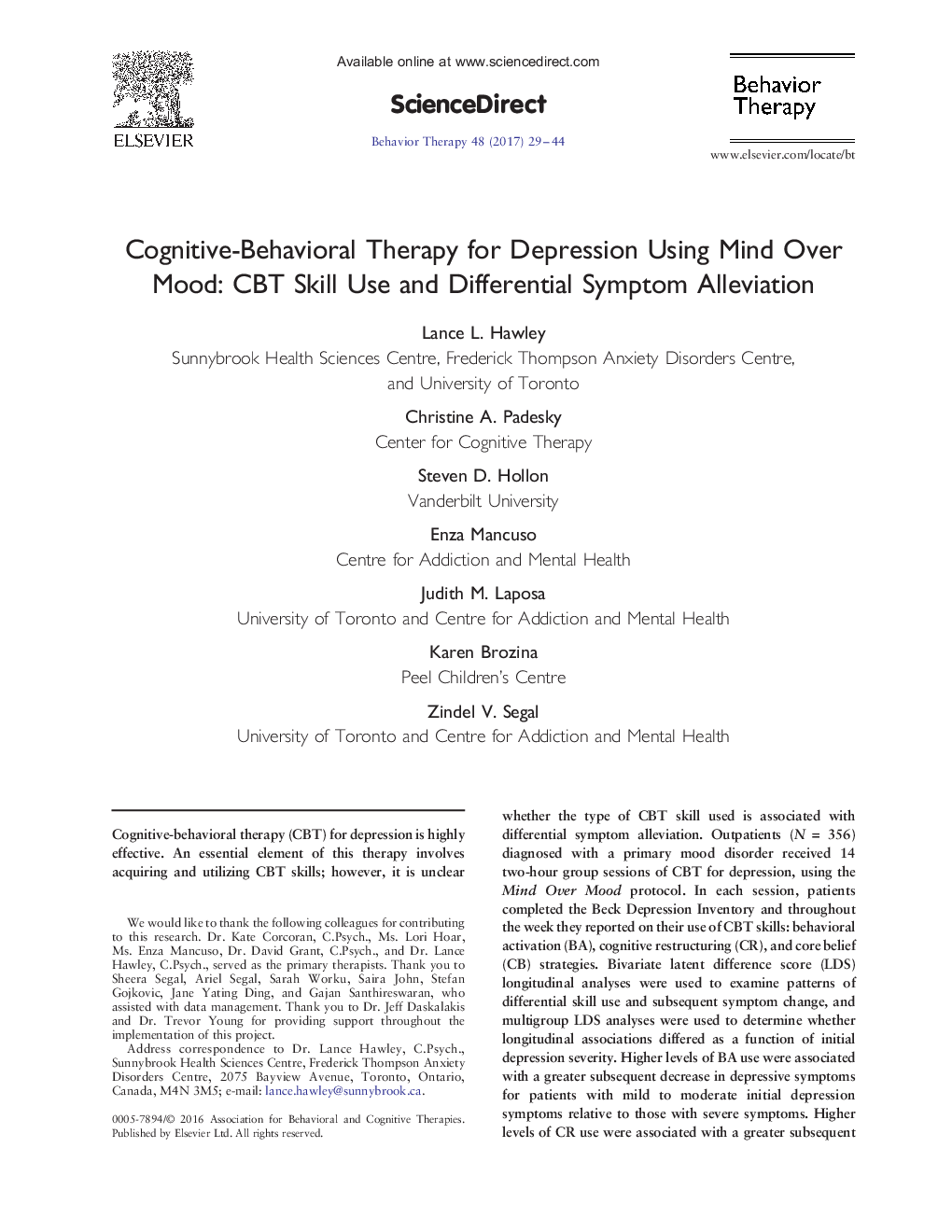| Article ID | Journal | Published Year | Pages | File Type |
|---|---|---|---|---|
| 5038078 | Behavior Therapy | 2017 | 16 Pages |
â¢Type of CBT skill used was associated with differential patterns of symptom change.â¢Behavioral activation was associated with differential symptom alleviation as related to depression severity.â¢Cognitive restructuring was associated with differential symptom alleviation as related to depression severity.â¢Core belief strategies were associated with increased depression symptoms as related to depression severity.
Cognitive-behavioral therapy (CBT) for depression is highly effective. An essential element of this therapy involves acquiring and utilizing CBT skills; however, it is unclear whether the type of CBT skill used is associated with differential symptom alleviation. Outpatients (N = 356) diagnosed with a primary mood disorder received 14 two-hour group sessions of CBT for depression, using the Mind Over Mood protocol. In each session, patients completed the Beck Depression Inventory and throughout the week they reported on their use of CBT skills: behavioral activation (BA), cognitive restructuring (CR), and core belief (CB) strategies. Bivariate latent difference score (LDS) longitudinal analyses were used to examine patterns of differential skill use and subsequent symptom change, and multigroup LDS analyses were used to determine whether longitudinal associations differed as a function of initial depression severity. Higher levels of BA use were associated with a greater subsequent decrease in depressive symptoms for patients with mild to moderate initial depression symptoms relative to those with severe symptoms. Higher levels of CR use were associated with a greater subsequent decrease in depressive symptoms, whereas higher levels of CB use were followed by a subsequent increase in depressive symptoms, regardless of initial severity. Results indicated that the type of CBT skill used is associated with differential patterns of subsequent symptom change. BA use was associated with differential subsequent change as a function of initial severity (patients with less severe depression symptoms demonstrated greater symptom improvement), whereas CR use was associated with symptom alleviation and CB use with an increase in subsequent symptoms as related to initial severity.
